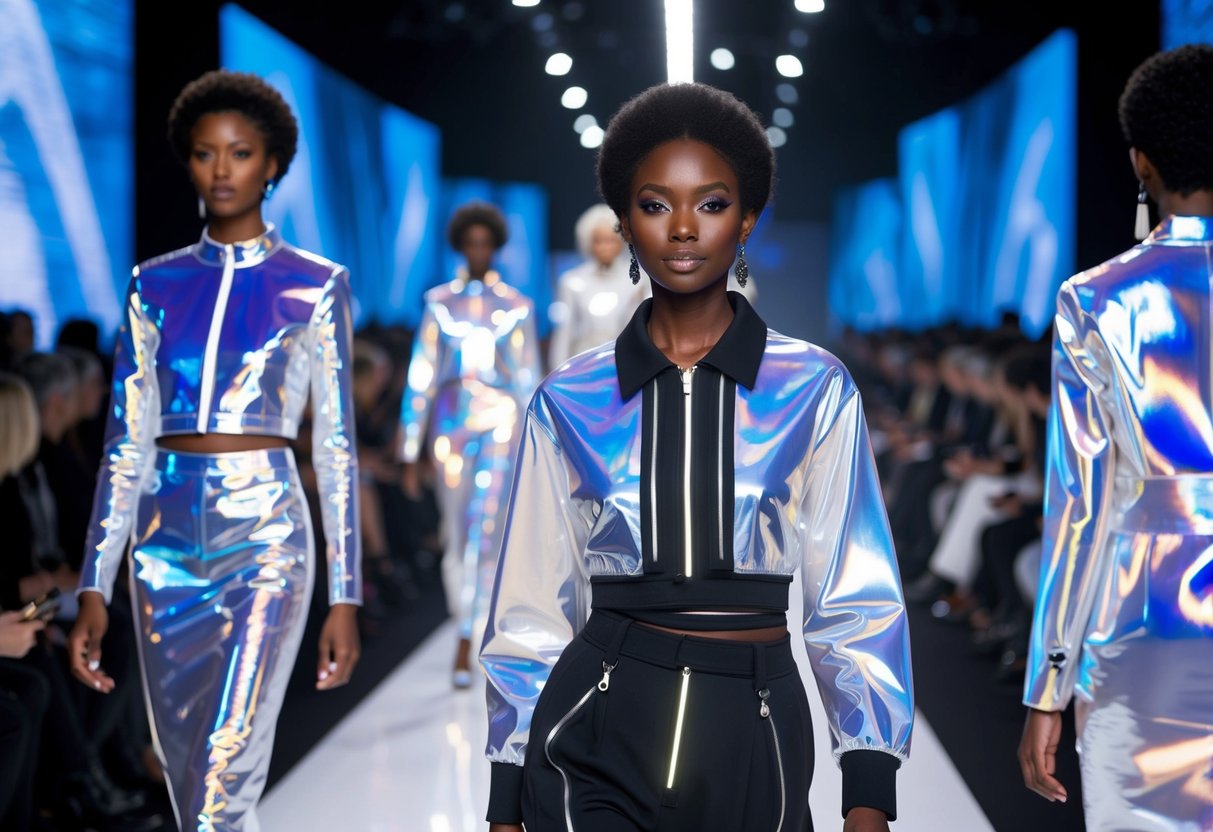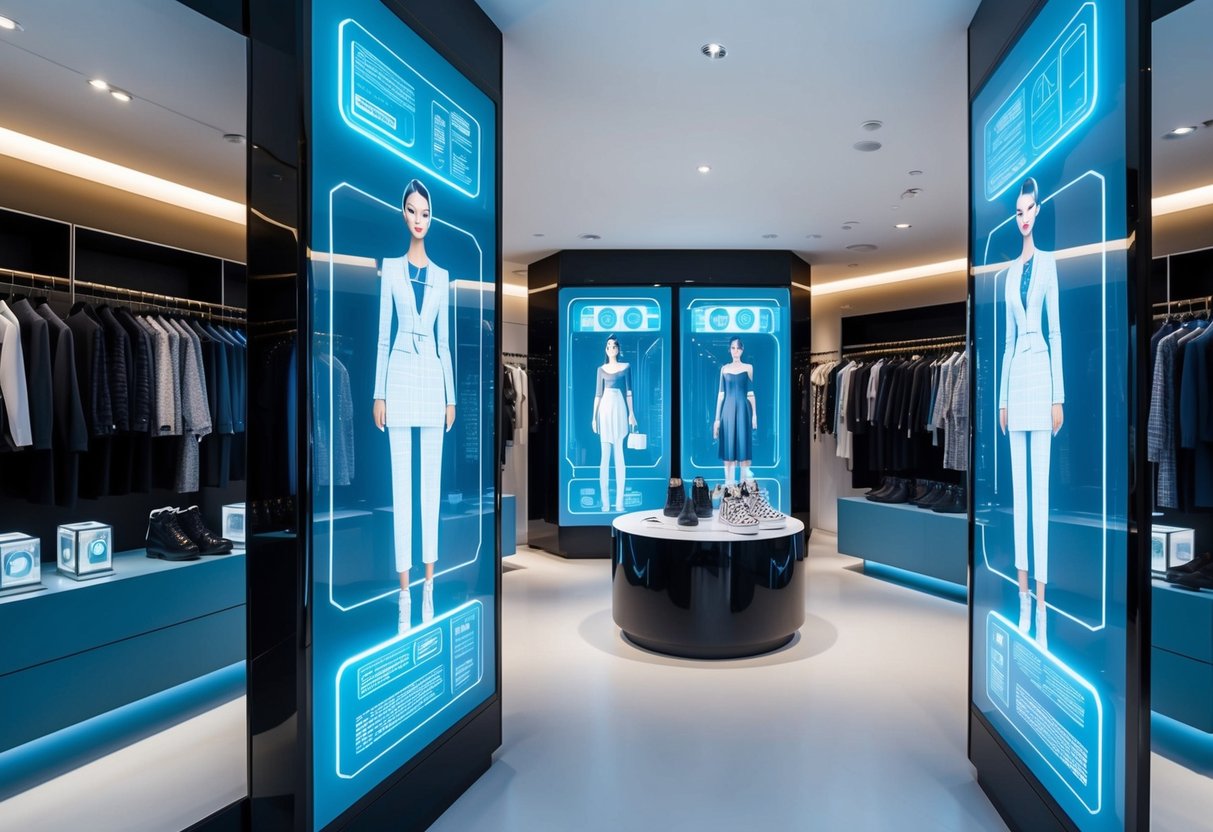
Blockchain’s Role in Authenticity and Ownership
Blockchain technology is playing a pivotal role in addressing concerns about the authenticity and provenance of products. By providing a decentralized and transparent ledger, blockchain ensures that the entire supply chain is visible to both consumers and manufacturers.
Each product can be tracked from its origin, allowing customers to verify its authenticity. This is especially crucial in industries like fashion, where counterfeit products can be rampant.
NFTs (non-fungible tokens) are gaining popularity and are used to certify ownership of digital fashion items, adding a new dimension to the fashion industry. As consumers become more conscious of ethical sourcing and sustainability, blockchain offers a way to verify brands’ claims about eco-friendly practices, providing them with more informed choices.
Artificial Intelligence in Fashion

Artificial intelligence is revolutionizing the fashion industry by enhancing demand forecasting, personalizing shopping experiences, creating innovative designs through generative AI, and increasing efficiency in manufacturing processes. These advancements enable businesses to be more responsive to consumer trends and streamline operations.
Demand Forecasting and Personalization
AI algorithms analyze large datasets to predict consumer demand with significant accuracy. By examining social media trends, purchasing history, and weather patterns, companies can adjust their inventory and reduce overproduction. This reduces waste and enhances profitability. AI personalizes shopping experiences by suggesting products tailored to individual preferences, thereby increasing customer satisfaction and loyalty. Virtual fitting rooms and personalized recommendations are reshaping the way consumers interact with fashion brands, making shopping more convenient and enjoyable.
Generative AI for Design Creation
Generative AI tools empower designers to create novel and diverse clothing patterns by exploring endless possibilities. These tools simulate various design elements and combine them in unique ways, providing designers with creative inspiration and freedom. The ability to visualize potential products speeds up the design process, allowing designers to experiment without the constraints of traditional methods. This innovation is crucial for brands aiming to stand out in a competitive market by offering unique and customized fashion items.
AI-Powered Manufacturing
AI in manufacturing optimizes production processes by improving precision and reducing errors. Automated quality checks ensure that each item meets high standards, minimizing defects and enhancing customer satisfaction. AI-driven robots facilitate faster production rates, enabling quick responses to market demands. By optimizing resource use and labor, AI helps reduce costs and increase productivity. Factories equipped with AI technologies can adapt swiftly to changing trends, maintaining a competitive edge in the ever-evolving fashion landscape.
Sustainable Practices and Circular Economy
Sustainable fashion embraces environmentally friendly approaches, emphasizing the use of novel fabrics and enhancing supply chain transparency. These practices aim to reduce waste and promote ethical manufacturing, ensuring a more sustainable future for the industry.
Novel Fabrics and Sustainable Materials
Innovative fabrics are at the forefront of sustainable fashion. Materials like organic cotton, bamboo, and Tencel are gaining popularity due to their lower environmental impact. These fabrics require less water and pesticides, making them a more sustainable choice. Additionally, there is a growing interest in fabrics made from recycled materials, such as PET bottles, which are transformed into wearable textiles.
The development of plant-based leather alternatives is also revolutionizing the fashion industry. These materials provide an eco-friendly substitute to traditional leather, reducing the industry’s reliance on animal products and harmful tanning processes. Innovations in novel fabrics support a shift towards environmentally conscious clothing, offering consumers more ethical options without sacrificing quality.